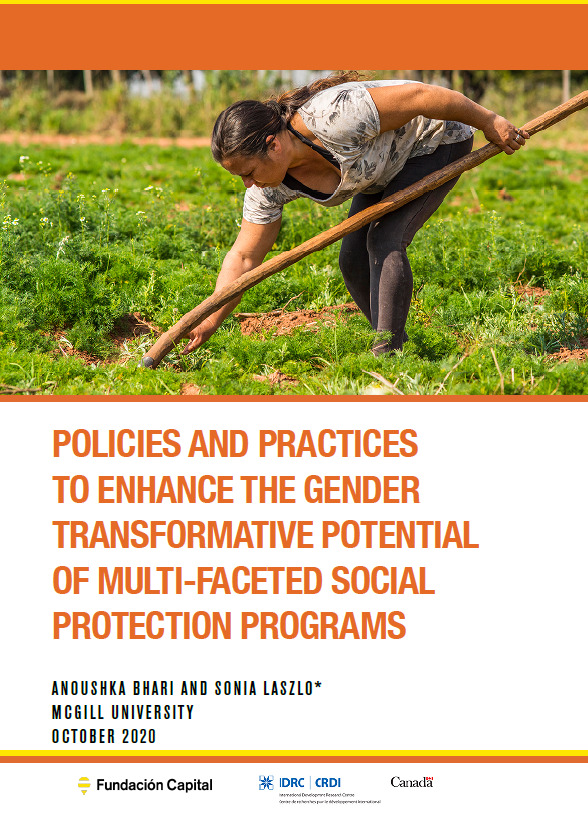Policies and Practices to Enhance the Gender Transformative Potential of Multi-faceted Social Protection Programs
By Max Gollin • October 1, 2020 • 1 minute read

Anoushka Bhari and Sonia Laszlo, McGill University (2020)
ABSTRACT
This scoping paper documents current practices used by Graduation Program practitioners to produce meaningful and sustainable improvements in women’s wellbeing. To do so, it builds on the theory of change in Rao and Kelleher (2005) and adapted by Hillenbrand (2015) and identify practices that affect change along two dimensions: from individual to community levels and from the formal to the informal. We document a number of ways in which such programs attempt to affect change beyond the more traditional aims of alleviating resource and liquidity constraints. Indeed, organizations are increasingly concerned with improving women non- economic outcomes by incorporating empowerment components in their programming and by engaging men and boys in the household and the community. These efforts are in recognition of the need to challenge traditional gender norms to maximize the potential and sustainability of anti-poverty initiatives.

